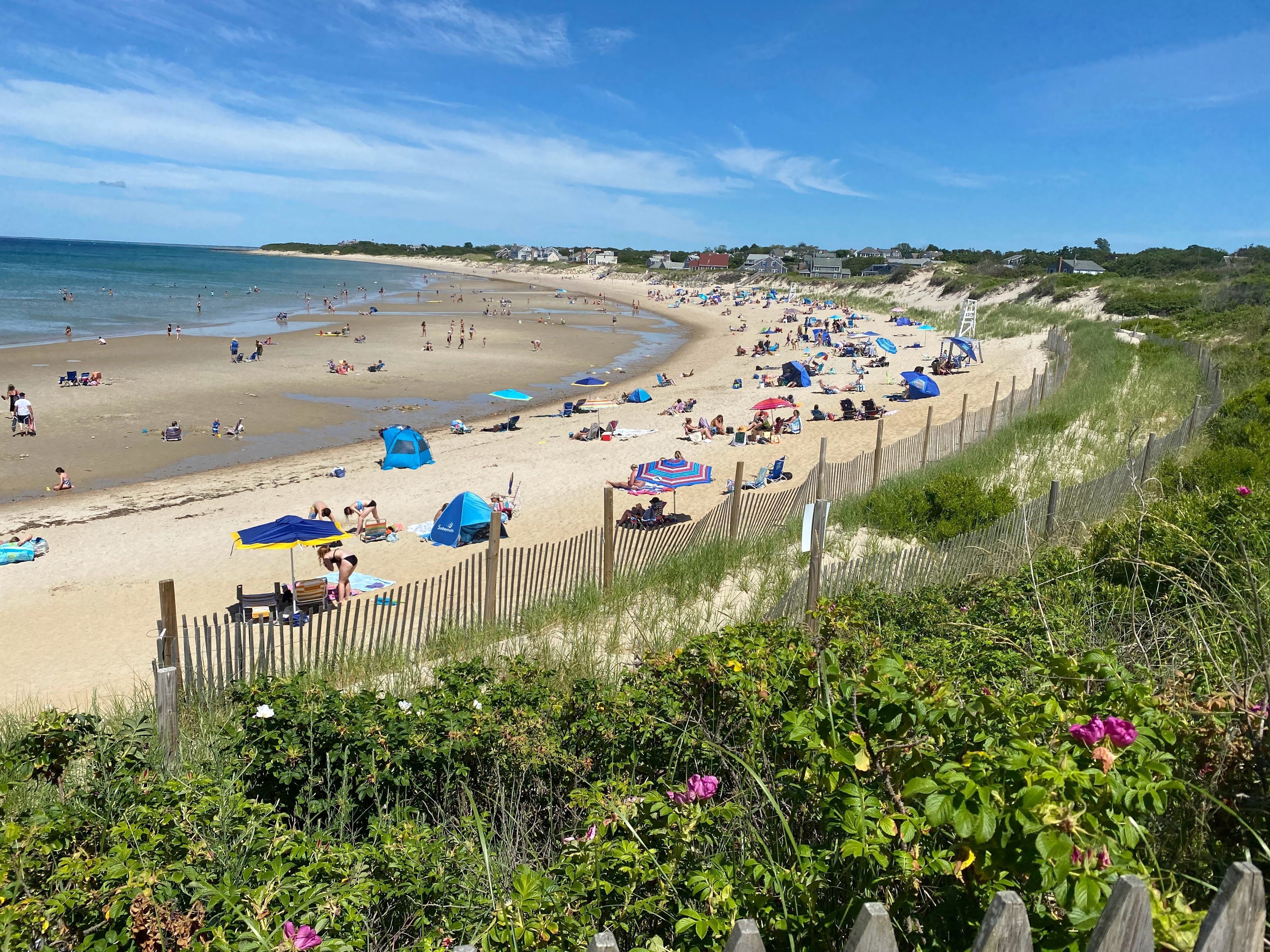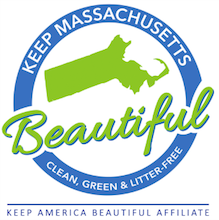
Did you know that Massachusetts is home to 1,500 miles of coastline? We are lucky to live in a state with so many beautiful beaches and shorelines—not to mention lakes, rivers, and ponds!
To ensure we can continue to enjoy our beaches and coastline, we must be vigilant about removing marine debris whenever possible.
COASTSWEEP 2024, the annual statewide beach cleanup sponsored by the Massachusetts Office of Coastal Zone Management (CZM), will kick off later this month. Sign up now to organize a cleanup at your favorite beach, marsh, dive site, or riverbank or to participate as a volunteer.
These events are part of an international campaign organized by the Ocean Conservancy. Participants all over the world collect trash and other marine debris and record what they find. This data is then used to help reduce future marine debris problems. Cleanups are taking place from August through November.
Learn more about a cleanup happening this season near you. If you don’t see a cleanup in your area, you can organize your own event!
What is marine debris?
Marine debris is defined by the National Oceanic and Atmospheric Administration (NOAA) as, “any persistent solid material that is manufactured or processed and directly or indirectly, intentionally or unintentionally, disposed of or abandoned into the marine environment.”
The most common ways this debris can end up in our waterways is by littering or dumping, or by falling off a boat or ship. Often, debris and litter are washed out to sea via storm drains, rivers, or streams. Along its journey, this debris will often end up along our shorelines as well. Types of debris are plentiful, but plastic bags, fishing gear, bottle caps, plastic straws, food wrappers, cigarette butts and beverage containers are some of the most common repeat offenders.
How does marine debris affect our environment?
Marine debris negatively affects all aspects of our environment, from fish, birds, marine mammals, to humans, and the ecosystem itself. Animals that call our waters home can be choked, starved, or poisoned when they mistake debris for food. They can also become entangled in nets, bags, ropes, and other trash. Entangled animals (including endangered whale species) often die a slow and painful death from entanglements.
Debris can also pose a threat to us humans! Beachgoers may hurt themselves while walking along the shore if they step on glass, wood, or metal debris. Out on the water, boaters can get their propellers stuck or jammed on large pieces of debris or fishing line floating in the water.
What can you do to help?
To help tackle the issue of marine debris, the Massachusetts Office of Coastal Zone Management (CZM) encourages residents to follow these tips:
- Don't overfill trash or recycling bins at the beach. Overflowing trash and recycling bins can create a huge mess in windy conditions. Try to practice a personal "carry in-carry out" policy when visiting a beach or coastal park.
- Keep litter and trash away from storm drains. This one is simple—don’t be a litterbug! Always dispose of your trash or recycling in appropriate waste management receptacles. If you’re visiting a beach, lake, or river, avoid single-use plastic if possible and be sure to give your area a clean sweep before leaving.
- Purchase products with eco-friendly packaging. To avoid creating trash or recycling altogether, aim to purchase products with minimal packaging, or packaging that can be recycled. Check out this list of zero-waste stores in our state.
- Recycle items when possible. Not sure what is recyclable or not? Check out this smart guide!
- Ensure that your yard is trash-free. Your yard is an area that can be a breeding ground for marine debris, as items can easily be swept up by the wind and end up in storm drains or local waterways. Make sure your yard is trash-free to avoid unintentionally contributing to marine debris!
- Securely cover your trash cans. While you’re checking on your yard, make sure your trash cans and recycling bins are securely covered.
- Carefully stow trash when boating. If you own or charter a boat, make sure you are carefully stowing trash in a secured trash bin. It is all too easy for one gust of wind or a bumpy ride to send some trash overboard into our waters.
- Teach others about marine debris and encourage them to take action too. Now that you have made it to the end of this article, copy the link and share it with your friends!
- Sponsor a Clean Coast Coalition Cleanup. The Clean Coast Coalition hosts marine debris cleanup events and demonstrations at harbors, marinas, lakes, and other waterways across Massachusetts. Each event features a cleanup of a local waterway. Ideally, each event will also include a nearby land-based litter cleanup to prevent these materials from entering the local waterway.

